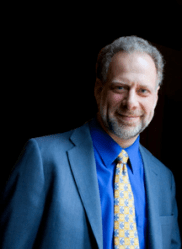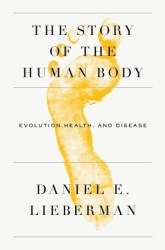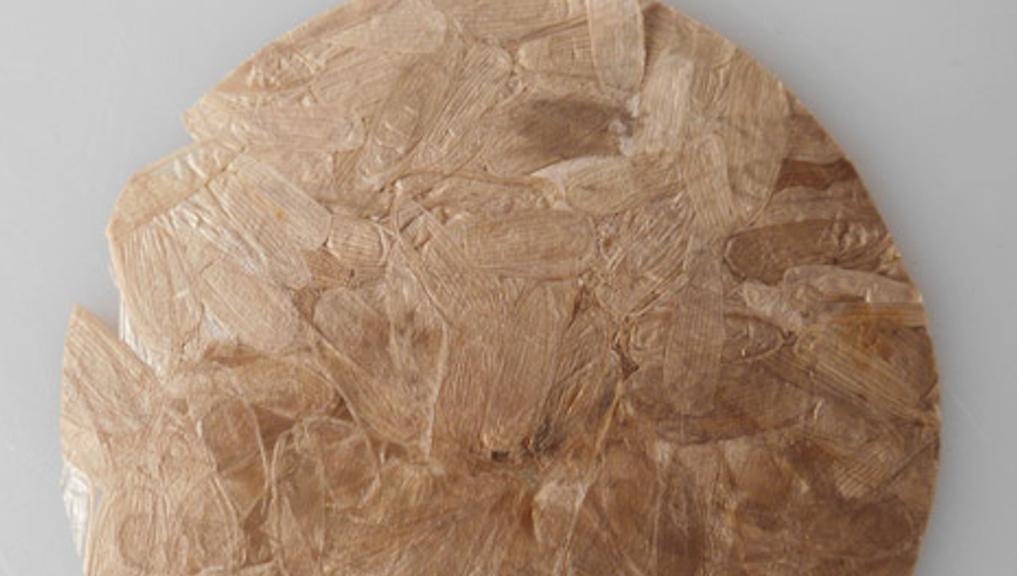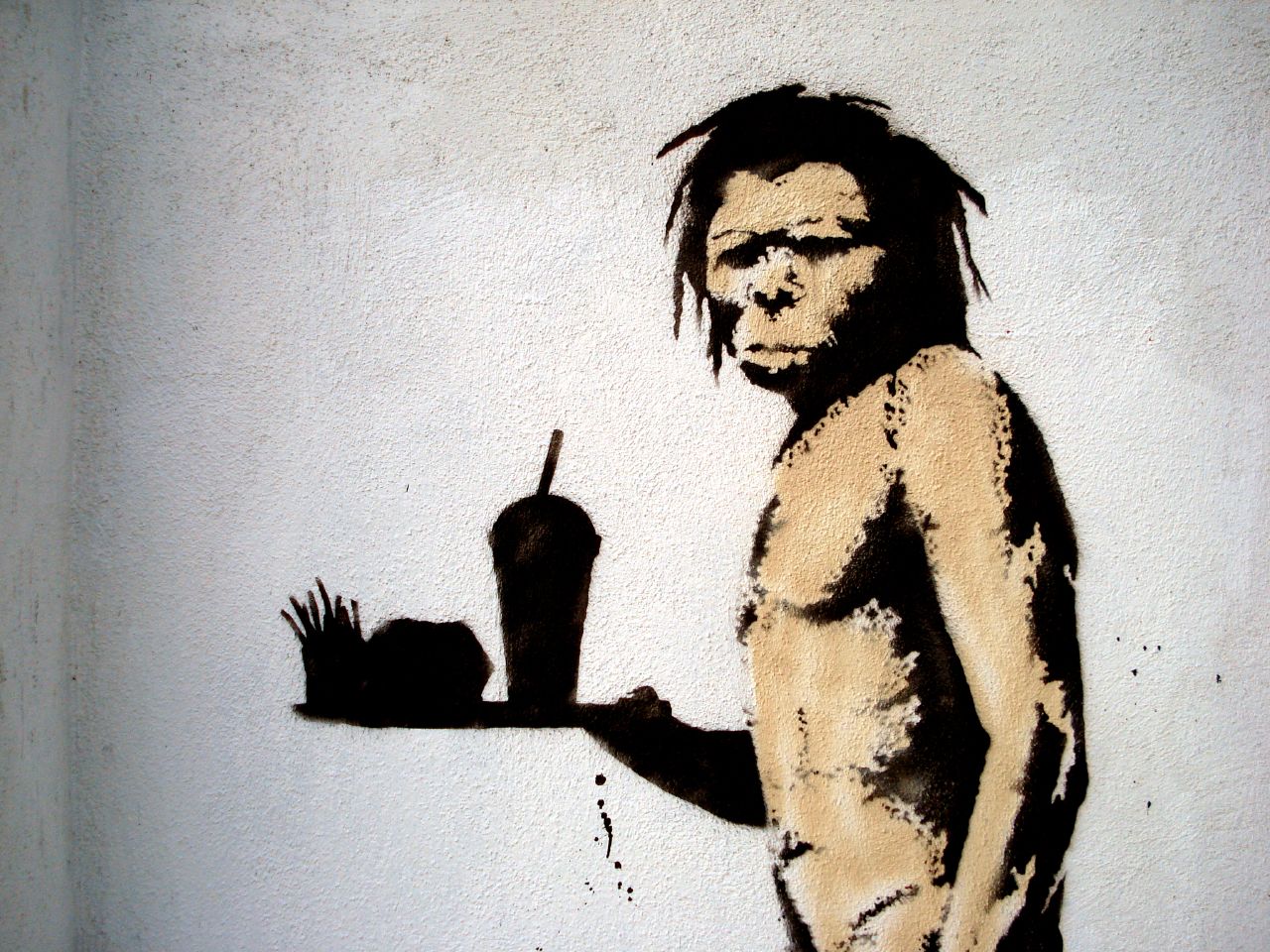For Daniel Lieberman, a professor of human evolutionary biology at Harvard, many of our problems today boil down to this: Through much of human evolution, our ancestors spent their days eating twigs and berries, chasing antelope, and being chased by things with big, nasty teeth; these days, the only things we chase are our double greaseburgers and fries — and it’s usually with 32 ounces of corn-syrup-laced soda. We’re cavemen come to live in the city. Our bodies just aren’t adapted for this stuff.
 Those are my words, of course. Lieberman is much more eloquent and precise about the subject, which he’s explored in great depth in his new book, The Story of the Human Body: Evolution, Health, and Disease. Lieberman is the first to point out that modern living and technology have made our lives better in many ways. Still, a look back at where we came from can tell us a lot about where we’re headed, he says — and how we might alter that course for the better.
Those are my words, of course. Lieberman is much more eloquent and precise about the subject, which he’s explored in great depth in his new book, The Story of the Human Body: Evolution, Health, and Disease. Lieberman is the first to point out that modern living and technology have made our lives better in many ways. Still, a look back at where we came from can tell us a lot about where we’re headed, he says — and how we might alter that course for the better.
I caught up with Lieberman recently for a conversation that ranged from the paleo diet to Fruit Roll-Ups to the similarities between the obesity epidemic and climate change.
Q. You write in your book about “mismatch” diseases that arise from the fact that our present-day environments and lifestyles are so different than they were through most of human evolution.
A. That’s right. We’re very poorly adapted for some of the modern environments which we’ve created. It is pretty clear, for example, that we’re poorly adapted to being extremely sedentary, or to eating lots of sugar. Right now I’m sitting in a chair, right, and I’m staring into a computer screen, and you know, we’re definitely not adapted for those things.
Q. Are you into the paleo diet?
A. Not really. I think, to be honest, it is a bit on the silly side. I think the paleo diet is based on some good science and some good ideas, but there are also some assumptions there which I question. Just because our ancestors ate it doesn’t mean that that’s optimal. Furthermore, just because something’s ancient doesn’t mean it’s good for you, and just because something’s recent doesn’t mean it’s bad for you. One has to be thoughtful about how one applies evolution to living today.
I don’t want to harp on the paleo diet, because I [laughs] have a lot of friends who follow the paleo diet. But you can’t just look back in time and say, “Alright, we were adapted to live the way people lived 50,000 years ago in Africa.” Our bodies are a jumble of adaptations.
Q. Still, we’re kind of in a bind. When I heard you speak in Seattle recently, you said something to the effect of: “We evolved as endurance athletes, but also to take advantage of every opportunity to rest and relax, and we evolved with low-carbohydrate, low-fat diets, but also to crave sugar and fat.” And now we have way too much sugar and fat — and way too little exercise.
A. During the Paleolithic, people didn’t exercise because they wanted to, they exercised because they had to. So being lazy, which we consider one of the cardinal sins — I mean, only a farmer would come up with that definition, right? A hunter-gatherer would say that being lazy is a good thing. It means that you save energy. When you have an escalator next to a stairway — it is a Paleolithic instinct that gets you on the escalator rather than taking the stairs.
And we evolved to store as much fat as possible. That’s because most hunter-gatherers live at the margin of energy balance, right? They get just enough calories to pay for their bodies. And when they have a surplus, they use it to store on a little extra weight, for the inevitable times when there is not a surplus.
 Q. So we’re a bunch of hunter-gatherers wandering around in a world of too much.
Q. So we’re a bunch of hunter-gatherers wandering around in a world of too much.
A. Exactly.
Q. OK, so knowing what you know about human evolution, how do you propose that we deal with, say, the obesity epidemic?
A. Well, that’s the trillion dollar question. Fortunately I’m an evolutionary biologist so nobody’s going to take my opinion very seriously.
Q. You can’t get out of it that easily!
A. Well, no. I think that if we’re going to understand the solution to problems, we have to understand their causes. And the fact of the matter is that we did not evolve to have to make the kinds of choices that we make today. If you put a plate of chocolate cake next to a bunch of celery and carrots — of course I’m going to eat the cake! I love cake.
We all need help making choices that are in our own self-interest. And so that means we have to use collective action. We did it with cigarettes, right? It used to be that half of America — 50 percent of adults in America — smoked. And through actually relatively modest changes in the law, and public service announcements, we’ve got that down to about 20 percent. Why don’t we have taxes on junk food and sugar?
I mean, you can go to the supermarket and buy Fruit Roll-Ups, which tell you they’re made from “real fruit” — and advertise in large letters that they’ve got lots of vitamin C — and yet the glycemic index of those Fruit Roll-Ups is worse than soda. It’s poison! But it’s legal to advertise it as healthy. And kids of course like it, and parents, they don’t understand metabolism, they’re getting duped into buying basically poison for their children.
Q. Halloween must be your worst nightmare.
A. Well, one night, you know, I’m not the Grinch. But we need the government on our side, not on the side of the people who are out there doping us, and poisoning us, and making money off of our instincts.
Q. So were you a fan of [New York City Mayor] Mike Bloomberg’s soda ban?
A. Of course I was! Yeah. I think it was completely on the right track. And it was fascinating to see how upset people were by it — you know, “the nanny state!” People were more passionate about that than many were about whether the NSA is eavesdropping on their phone calls. He wasn’t banning soda, he was just saying if you want to drink anything larger than 16 ounces, you have to buy two of them. You just have to use two hands to hold your poison rather than one hand.
Q. I don’t know how much thought you’ve given to climate change, but it strikes me that there are a lot of parallels here.
A. I totally agree. I mean, most of these diseases, the reason we don’t act on them appropriately is that they’re chronic diseases whose effects occur long after the stimulus that causes them. And they accrue slowly, bit by bit. And there are also benefits that come from whatever it is that’s causing the problem. And that’s exactly the same thing with climate change. I mean, every time I use my car, you know, there’s a benefit — I am able to go to the supermarket and bring home lots more stuff than I would if I were to walk, right? There’s a short drive to the supermarket, but that little drive is having such a tiny effect on greenhouse gases. And of course the problems I’m causing are going to come back and affect my great-grandchildren, not me.
Q. So what types of solutions to climate change might actually be fruitful?
A. Well I think the same arguments that I was making about obesity, in general, apply to both of these problems. That’s because it’s not in people’s instincts to not eat sugar, it’s not in people’s instincts to train for a marathon, it’s not in people’s instincts to give up using carbon-dioxide-producing sources of energy. We as a society need to help induce people to do what’s right.
That means changing the default setting. That means building public transportation so that it’s cheaper and easier for people to take public transportation to work than it is for them to drive to work. That means reengineering our cities. And that requires collective action, and that requires, well, politicians. The obesity epidemic was caused by political decisions to a large extent, or by political inaction. And I would argue that the climate crisis that we are facing is of the same ilk.
Q. Are you an optimist or a pessimist at this juncture?
A. [laughs] Well … I try to be an optimist. Because, I guess that’s maybe my psychology. But I think that — again, we did a pretty good job on cigarettes. If we can reduce cigarette consumption that much through relatively modest means, we can do this.



